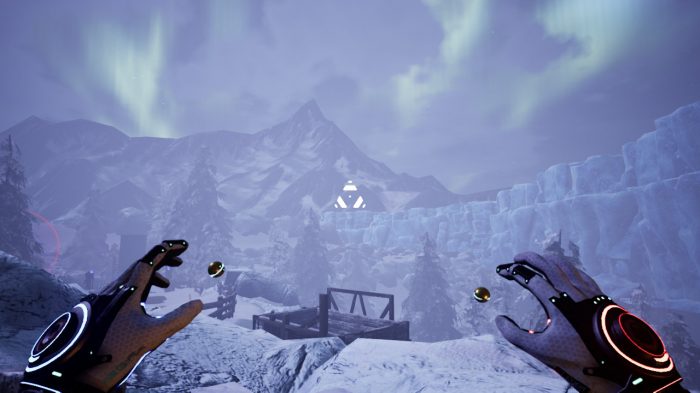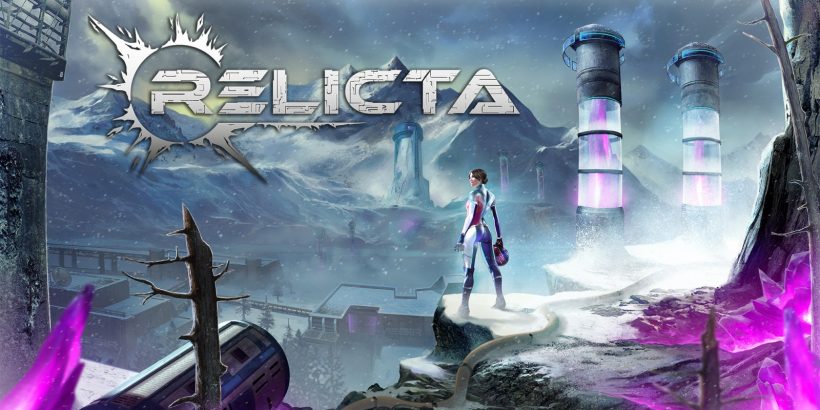Nowadays, you could say there’s an entire genre of first-person puzzlers, which comes in a wide range of art styles and gameplay mechanics.
While their inspiration probably dates back to Valve’s seminal Portal, the truth is that this genre is extensively explored by indie developers. Titles such as The Witness, The Talos Principle, and Q.U.B.E. 2 prove that these puzzlers can be extremely inventive in their mechanics. Relicta follows the same trend, but instead of portals, it asks the player to think with gravity and magnetism.

Relicta chooses an interesting way to tell its narrative. You have an introductory scene that takes place in media res, showing some kind of experiment failing at a laboratory on the Moon. After leaving the player with that suspense in mind, Relicta goes back in time and puts you in the shoes of Angelica Patel, a scientist working on the Chandra Base. From there, you start to experience her daily activities, all while you try to do the best for science.
When compared to other first-person puzzlers, you could say that Relicta has a much stronger reliance on the narrative department — for the good and for the bad. On the bright side, Relicta presents an interesting range of different characters, all of whom are fully voiced in a convincing way. From time to time, you witness some sweet conversations between Angelica and her daughter Kira, or some funny discussions with the coworker Dr. Laia. Unfortunately, though, Relicta’s narrative creates some problems for its puzzle segments. After all, it is hard to understand why you have to stop to do some experiments when other characters are facing real danger, and really need your help as soon as possible.

When it comes to the puzzles themselves, though, Relicta does an almost perfect job in presenting interesting rules for you to play with. In general, puzzles are created with a mix of cubes that you need to use to activate pressure buttons. While this may sound too simple and derivative, the fact that you can remove gravity from cubes and imbue them with a positive or negative magnetism field really opens up lots of interesting interactions at each puzzle chamber. There are a few instances, though, where the game demands finesse in execution that you can’t really match. These are especially problematic at segments that ask you to be quick, changing your character position between different places or buttons.
When it works, though, Relicta presents a nice selection of puzzles that scale in difficulty in an enjoyable way. As you progress through the 12-hour campaign, new elements are added to the basic magnetism mechanics, up to the point that you may find yourself stuck in some puzzles, banging your head for a few minutes until you find the right solution. When you finally finish a hard puzzle section, not only do you get that satisfactory feeling of triumph, but you also unlock a new segment of Relicta’s interesting narrative.

It is also surprising to see how the entire experience of Relicta is presented with a nice realistic visual style that — for the most part — runs well enough. There is a nice variety of scenarios you’ll encounter while exploring the Chandra Base, some of which are awe-inspiring. Unfortunately, though, at some of the most demanding scenarios, you may notice some drops in the frame rate, not to mention a heavy hit on resolutions, which makes the entire scenario blurry.
If you can bypass these few issues, you will have a great puzzler at your hands — no gravity included.
Relicta £15.99
Summary
With a strong focus on the narrative department, Relicta presents an enjoyable first-person puzzler experience where you need to bend the gravity rules. If you can ignore a few technical issues, you may find a relic in the rough.

